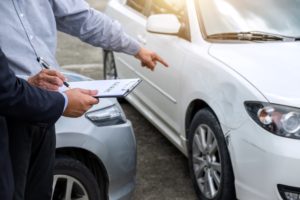
We’ve all borrowed a car from a friend or family member before- yours may be in the shop, or maybe theirs is a better size for something you need to buy. You’re probably extra careful and aware you’re being trusted with something extremely valuable, but accidents can still happen. So what happens when you’re involved in a crash? You may be surprised to learn that the owner of the car is liable, even if they aren’t in the vehicle at the time. With their insurance paying for your visits to the car accident chiropractor and potential legal fees, you’ll want to fully understand the implications.
No-Fault Insurance Laws
Many states have no-fault laws, which require insurance to pay out your policy up to a limit regardless of who is at fault for the accident. Only in limited instances can you then seek compensation from the other driver’s insurance.
In other states, like Georgia, fault needs to be determined before any claim is filed. The claim will then sit with the at-fault party’s insurance. If the other party is at fault, you can seek the full amount of damages from their insurance company, including medical expenses, property damage, pain and suffering, and lost wages.
This means that if the other person is at fault, you don’t have to worry about the vehicle owner’s insurance. But if you’re at fault, it’s their policy that will be used to offer coverage to other parties. If their coverage is insufficient, your policy may then come into play to provide additional compensation.
Insurance Coverage
The general rule for liability is that insurance companies will follow the vehicle, not the person. So a borrowed car will use the owner’s insurance for primary coverage. If that person’s Personal Injury Protection doesn’t cover all incurred medical expenses, you can file a claim against them for additional insurance coverage.
This is known as a bodily injury liability claim. In Georgia, the minimum required coverage is $25,000 per person and $50,000 per accident.
Authorized Drivers
One part of determining liability will be about the concept of an authorized driver. A car owner can add additional drivers to their insurance policy in order to have them fully covered in the event of an accident. This would usually be household members like a spouse or child old enough to drive. When an accident occurs during an authorized driver’s use of the vehicle, all coverage for personal injury and property damage apply. An authorized driver does not mean simply that you gave someone permission to drive your car for the day, unless this is reflected on your policy. However, this is usually the case in most accidents.
There are also scenarios in which you expressly forbid someone from driving your car or name them as an excluded driver on your policy. This would make the situation the equivalent of a stolen vehicle if an accident occurs, and drivers are usually not entitled to any medical benefits.
Negligent Entrustment and Vicarious Liability
It is important to be cautious when lending out your car due to a law known as negligent entrustment. This law assumes that when you lend a vehicle to someone, you believe them to be fit to manage a vehicle on the road and not endanger themselves or others. If you allow someone to drive your car who is unlicensed, under the influence of drugs or alcohol, is below driving age, or has a history of negligent driving, you can be considered personally liable for any damage that occurs.
On the other hand, it is also assumed that you are lending a car you believe to be working and safe to drive. If you are aware your vehicle is unsafe to drive and still lend it out, you can be held liable. This can also be relevant when a company-owned vehicle has been issued without proper maintenance.
The Aftermath of an Accident
Regardless of who is at fault or whose care you were in, medical care after a car accident injury is critical. At AICA Jonesboro, we are skilled at navigating the claims process and will help you with any questions along the way. But moreover, we offer a range of specialists who can diagnose and treat injuries you may have suffered as a result of an accident. Don’t wait to figure out the legal aspects of your case to seek treatment- contact us today for your first consultation!
